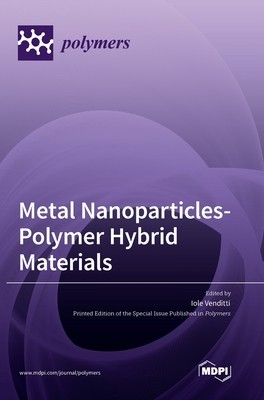
- We will send in 10–14 business days.
- Publisher: MDPI AG
- ISBN-10: 3036552030
- ISBN-13: 9783036552033
- Format: 17 x 24.4 x 1.4 cm, hardcover
- Language: English
- SAVE -10% with code: EXTRA
Metal Nanoparticles-Polymer Hybrid Materials (e-book) (used book) | bookbook.eu
Reviews
Description
Metal nanoparticles/polymers hybrid materials have significantly contributed to the develop of nanotechnology. Moreover, these hybrid materials can respond to stimuli (e.g., pH, temperature, light, magnetic field) or self-degrade in a controlled manner to release metal nanoparticles or therapeutics encapsulated. Functional and structural hybrid materials provide opportunities for creative fields, remarkable properties, and future advanced applications.
This Special Issue focuses on highlighting the progress of new hybrid materials, based on metal nanoparticles and polymers, their design, preparation, functionalization, characterization, and advanced applications.
- Publisher: MDPI AG
- ISBN-10: 3036552030
- ISBN-13: 9783036552033
- Format: 17 x 24.4 x 1.4 cm, hardcover
- Language: English English
Metal nanoparticles/polymers hybrid materials have significantly contributed to the develop of nanotechnology. Moreover, these hybrid materials can respond to stimuli (e.g., pH, temperature, light, magnetic field) or self-degrade in a controlled manner to release metal nanoparticles or therapeutics encapsulated. Functional and structural hybrid materials provide opportunities for creative fields, remarkable properties, and future advanced applications.
This Special Issue focuses on highlighting the progress of new hybrid materials, based on metal nanoparticles and polymers, their design, preparation, functionalization, characterization, and advanced applications.


Reviews